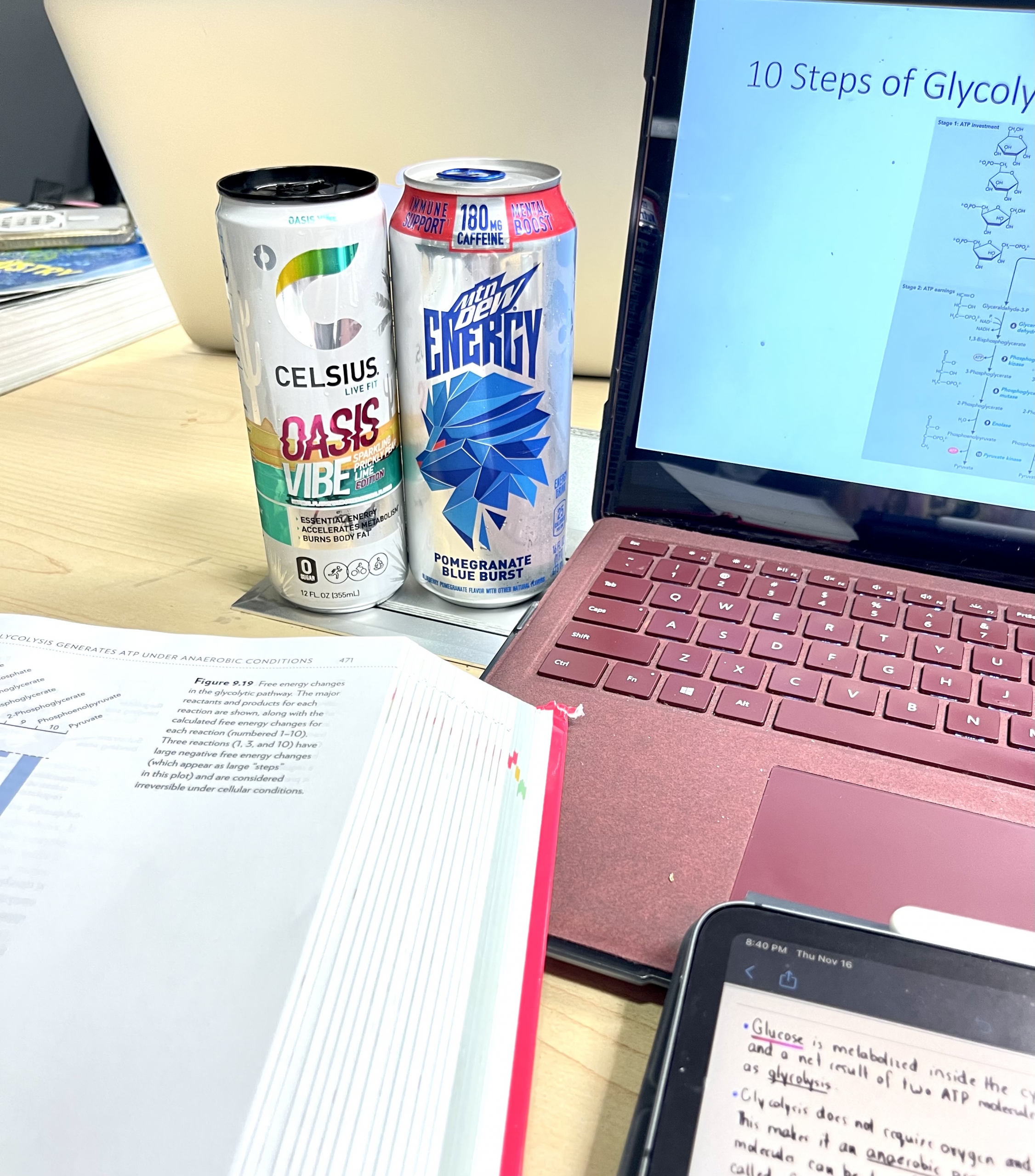Energy Drinks: Sip it or Skip it?
Dec 5 / CATEGORY: Nutrition
Estimated time read: 3 minutes, 30 seconds
In a world where Monday mornings feel like marathons and afternoon slumps have you contemplating a Marston nap, energy drinks are the fastest-growing beverage category in units and dollars. These beverages contain caffeine, sugar, and promises of supercharged performance, but do they live up to the hype? Read more to uncover the truth about energy drinks exploring their potential benefits and shortcomings.
What makes energy drinks energizing?
Before we jump into the wild ride of pros and cons, let’s demystify what energy drinks are all about. These drinks typically contain caffeine, the key ingredient known for its ability to increase wakefulness and alertness, and some energy drinks also include guarana extract, which may raise the caffeine content beyond what is listed on the can. There is more to these cans than just caffeine – they may also be packed with sugar, amino acids, and a dash of
B vitamins. All this wizardry promises to turn you from a groggy gremlin into a go-getter. But is it worth it?
The pros of energy drinks:
Energy drinks are known for their rapid delivery of renewed vitality, injecting a jolt of alertness into your sluggish routine. They can make your workouts more intense and give you the boost of

energy you need to power through your daily tasks. Additionally, these drinks can help improve your mood by making tasks feel less daunting and enhancing your reaction times, turning you into a caffeine-powered academic weapon.
The cons of energy drinks:
While energy drinks might sound like your ticket to invincibility, your heart might not appreciate the caffeine overload. The caffeine content can send your heart racing and may not be the best match for those with heart conditions or caffeine sensitivity. A caffeine crash, occurring after the effects of caffeine have worn off, can lead to a shocking bout of lethargy. Caffeine is also a mild diuretic and can contribute to dehydration. They can also wreak havoc on your sleep schedule, leading to insomnia and potential reliance on the energy boost they provide.
Take cautions!
Energy drinks are not a one-size-fits-all solution. Pregnant and nursing women, children, teenagers, and people with preexisting heart conditions should limit or avoid caffeine and energy drinks.
If you do not have any of these conditions and choose to dabble in the world of energy elixirs, be sure to hydrate. Drinking water and eating a meal or snack alongside your energy drink can help prevent dehydration and reduce the uncomfortable effects of caffeine jitters. To further mitigate anxiety and jitteriness caused by these drinks, you can try going for a walk, exercising, or practicing breathing exercises.
Let’s not forget the dubious combination of energy drinks and alcohol, a cocktail that can lead to unintended consequences. Combining caffeinated drinks with alcohol can lead to overconsumption and an inability to assess intoxication levels accurately.
It is recommended to limit caffeine intake to 400 milligrams per day. This amount is equivalent to 1-2 energy drinks or 24 ounces of home-brewed, medium-roast coffee. Please note that 400 milligrams is the maximum amount of caffeine to safely consume in a day, not the recommended daily amount. Overconsumption of caffeine can cause insomnia, nervousness, restlessness, nausea, increased heart rate, and even death. Check out the infographic below to compare the caffeine content of various energy drinks.

Alternatives to energy drinks:
There are also other avenues to boost your energy. The trifecta of exercise, hydration, and proper sleep can provide you with an energy pick-me-up without the potential side effects. Consider swapping that can of energy and opt for a water bottle and a quick workout for a speedy energy boost.
Conclusion:
In the battle between the pros and cons of energy drinks, the verdict is clear: they can be a tool or a tragedy, depending on how you wield them. Understanding the powers and pitfalls of these beverages is essential to make informed decisions about your energy consumption habits. Remember, with great power (and caffeine) comes great responsibility. So, make sure to sip wisely, stay energized, and stay safe!
This post was co-written by:
Jessie Furman, MS, RDN, LD/N and Nirali Patel
Jessie is a Registered Dietitian and Assistant Director for Fitness & Wellness at the University of Florida’s Department of Recreational Sports, where she does individual nutrition counseling and coaching with the UF community. Follow her on Instagram for more nutrition tidbits.
Nirali is a Program Assistant with Nutrition Services at the Department of Recreational Sports. She is a 3rd year Dietetics major with a minor in Health Promotion.
